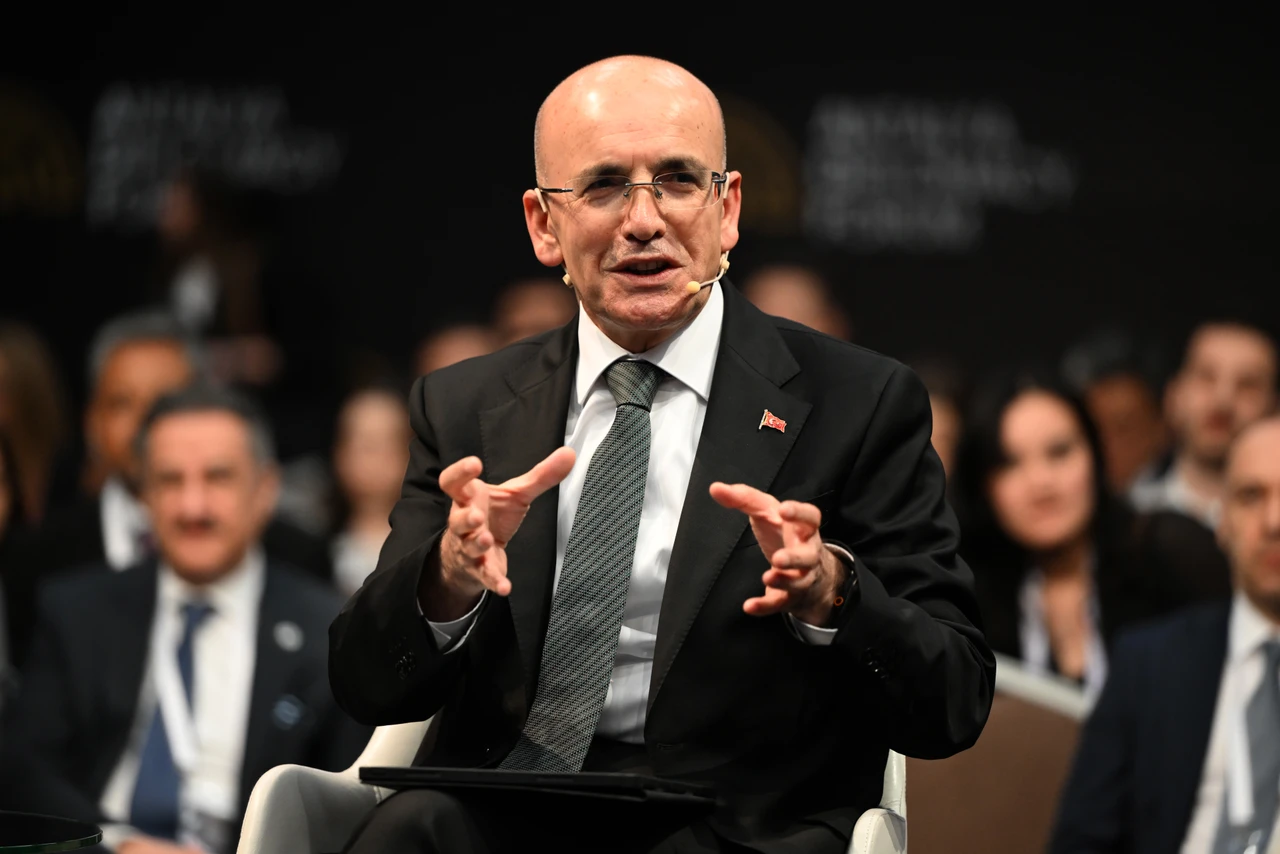Energy-importer Türkiye benefits from Trump’s global tariffs as commodity prices fall
 Photo illustration depicts a Turkish lira banknote overlaid with financial charts, symbolizing market trends amid shifting trade and fiscal policies, created on Apr. 4, 2025. (Collage by Türkiye Today)
Photo illustration depicts a Turkish lira banknote overlaid with financial charts, symbolizing market trends amid shifting trade and fiscal policies, created on Apr. 4, 2025. (Collage by Türkiye Today)
Türkiye may benefit from the Trump administration’s tariffs, as the country’s relatively low tariff rates could offer a comparative advantage in certain sectors—particularly amid falling commodity prices, especially in the energy sector, Finance Minister Mehmet Simsek remarked.
In a post on X on Friday, Simsek evaluated Türkiye’s March foreign trade data and addressed the Trump tariffs unveiled on Thursday, which include reciprocal measures on Turkish goods thanks to the balanced bilateral foreign trade, with minimum rates starting at 10%.

“We will continue to support production and exports in line with our sustainable current account deficit target,” Simsek emphasized.
The recent drop in global commodity prices, particularly seen in oil, combined with tighter financial conditions within Türkiye—such as limited credit availability or higher borrowing costs—could lead to a reduction in imports, narrowing the trade deficit.
Energy remains one of Türkiye’s main import goods, with the export-to-import coverage ratio rising from 76.3% to 89.1% when energy was excluded. Excluding both energy and gold, the ratio reached 93.3%.

However, Simsek also warned that the new U.S. tariff hikes—expected to weigh on global growth—are raising risk perceptions in financial markets and exerting downward pressure on commodity prices.
“While weak global growth poses a risk to our exports, our country’s relatively low tariff rates may provide a comparative advantage in certain sectors,” he said.
Foreign trade deficit rises 11.5% in Q1
According to monthly data released by Trade Ministry, Türkiye’s exports in March increased by 3.2% year-on-year to $23.39 billion, while imports rose by 2.3% to $30.65 billion.
The country’s foreign trade volume expanded by 2.7% to $54.04 billion during the same period. While the trade deficit narrowed slightly by 0.5% in March to $7.27 billion, the first quarter saw the deficit grow by 11.5% compared to the same period last year, reaching $22.58 billion. The export-to-import coverage ratio stood at 74.3%.
Simsek also highlighted that the annual trade deficit improved by $7.3 billion in March compared to the same month last year, falling to $84.5 billion. “Despite one fewer business day, exports in March rose by 3.2% year-on-year, while non-energy imports increased by only 0.8%,” he emphasized.



